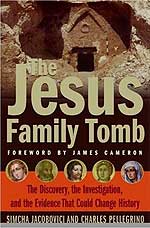Ray Pritchard has an interesting post over at CrossWalk.com entitled, “Why Don’t Pastors Preach From the Old Testament?” While most of the churches I have attended have done some preaching from the Old Testament (especially when I am preaching!), I would probably agree that the Old Testament gets preached a lot less than the New Testament.
Pritchard provides six reasons why he thinks this is the case. Here are his six points with my comments in brackets following them:
- Many pastors feel more comfortable with Greek than with Hebrew. [I’m sad to say that I think many pastors are most comfortable with English and rarely delve into the biblical languages — though feel free to correct me!]
- Most biblical training focuses on New Testament interpretation. [Sad but true]
- For some there may be theological reasons why they don’t preach from the Old Testament. Perhaps they view everything before Matthew as “preparation” (which in a sense it is) and therefore not worthy of extended attention from the pulpit (a sad mistake, in my opinion). [I would agree that this is a sad — and costly — mistake.]
- But my primary thought was that most seminaries specialize in teaching pastors how to preach the epistles. Our methods work best with Romans, Ephesians and the other Pauline epistles. We feel more comfortable with material that is presented logically and in a point-by-point fashion. Therefore our graduates gravitate more to Colossians than to Hosea. [Perhaps; at the very least most pastors seem to prefer to preach non-narrative and non-poetic passages, which pretty much eliminates the Old Testament! It’s hard — and unnatural — to reduce a narrative to a three-point sermon.]
- The flip side is that we aren’t so comfortable with the prophets–major or minor. Or with Job. What do you do with Job? Do you preach four or five sermons and move on? Ecclesiastes is a challenge. So is Song of Solomon in a different sense. Then you’ve got books like Leviticus, which most of us never touch. Or Deuteronomy, where we cherry-pick a passage here and there. [I think this is a valid point in that it is more difficult to preach some passages. Of course, that doesn’t mean you should avoid them. The fact of the matter is that while many pastors may think that the NT is more accessible, that is likely an illusion created by familiarity.]
- And how should we preach the great stories of the Bible? I personally have profited greatly from preaching through the lives of Abraham, Jacob, Samson, Elijah, the book of Daniel, and David’s early years. But I confess that preaching biblical narratives challenges and stretches the way many of us were taught in seminary. [I think that sometimes we take too much of an anthropological focus in our preaching. Rather than preaching on the lives of the characters in the Old Testament, it is far more profitable to preach on the God that interacts with them and showers them with his grace.]
As I often say (somewhat tongue-in-cheek) most Christians are practical Marcionites in that while they don’t reject the Old Testament, they tend to ignore it.
What is your experience? Does your church preach a lot from the OT? Do you think they should?

 There has been a lot of mention of the passing of the New Testament textual giant, Bruce Metzger, among the biblioblogs, and it was great to see the latest
There has been a lot of mention of the passing of the New Testament textual giant, Bruce Metzger, among the biblioblogs, and it was great to see the latest  There are also a couple books related to this discovery. Simcha Jacobovici co-authored a book with Charles Pellegrino related to the documentary:
There are also a couple books related to this discovery. Simcha Jacobovici co-authored a book with Charles Pellegrino related to the documentary: